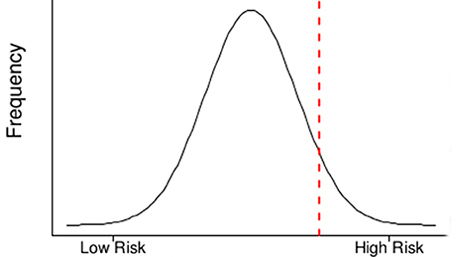
07/23/2020
Hot Topics of the Day are picked by experts to capture the latest information and publications on public health genomics and precision health for various diseases and health topics. Sources include published scientific literature, reviews, blogs and popular press articles.
Sign up MyPHGKB to receive the daily hot topic email alert.
Archived Hot Topics of the Day By Date
Why do asymptomatic COVID-19 cases even happen?
SE Richards, National Geographic, July 22, 2020y
Coronavirus vaccines leap through safety trials — but which will work is anybody’s guess
E Callaway, Nature News, July 21, 2020
Automated Detection and Forecasting of COVID-19 using Deep Learning Techniques: A Review
A Shoeibi et al, ARXIV< July 2020
Internet of Things for Current COVID-19 and Future Pandemics: An Exploratory Study
M Nasajpour et al, ARXIV, July 22, 2020
Comparative ACE2 variation and primate COVID-19 risk
AD Melin et al, BIORXIV, July 21, 2020
THE ORIGIN OF A NEW HUMAN VIRUS: PHYLOGENETIC ANALYSIS OF THE EVOLUTION OF SARS-COV-2
MJ Pereson et al, BIORXIV, July 21, 2020
The discovery of a recombinant SARS2-like CoV strain provides insights into SARS and COVID-2019 pandemics
X Li et al, BIORXIV, July 22, 2020
Elucidation of Genome Polymorphisms in Emerging SARS-CoV-2
M Ray et al, BIORXIV, July 22, 2020
The Trans-omics Landscape of COVID-19
P Wu et al, MEDRXIV, July 22, 2020
The hunt for the origins of SARS-CoV-2 will look beyond China- The virus may have been born in South-East Asia
The Economist, July 22, 2020
Rapid Scaling Up of Covid-19 Diagnostic Testing in the United States — The NIH RADx Initiative
BJ Tromberg et al, NEJM, July 22, 2020
Covid-19 and Health Equity — Time to Think Big
SA Berkowitz et al, NEJM, July 22, 2020
Group-based pharmacogenetic prediction: is it feasible and do current NHS England ethnic classifications provide appropriate data?
Ingram Catherine J E et al. The pharmacogenomics journal 2020 Jul
Polygenic Risk Scores in Clinical Practice
NSGC, Online Course, July 2020
Disclaimer: Articles listed in Hot Topics of the Day are selected by Public Health Genomics Branch to provide current awareness of the scientific literature and news. Inclusion in the update does not necessarily represent the views of the Centers for Disease Control and Prevention nor does it imply endorsement of the article's methods or findings. CDC and DHHS assume no responsibility for the factual accuracy of the items presented. The selection, omission, or content of items does not imply any endorsement or other position taken by CDC or DHHS. Opinion, findings and conclusions expressed by the original authors of items included in the Clips, or persons quoted therein, are strictly their own and are in no way meant to represent the opinion or views of CDC or DHHS. References to publications, news sources, and non-CDC Websites are provided solely for informational purposes and do not imply endorsement by CDC or DHHS.
- Page last reviewed:Feb 1, 2024
- Page last updated:Apr 25, 2024
- Content source:




